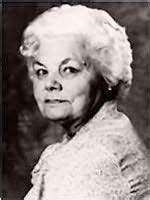A Quote by Paulo Coelho
Fairy tales had been her first experience of the magical universe, and more than once she had wondered why people ended up distancing themselves from that world, knowing the immense joy that childhood had brought to their lives.
Related Quotes
She had sacrificed her childhood to save her brothers; she loved her family above all else, and her spirits yearned to return home once more, to the wild forest and the land of mystic tales and ancient spirits whence he had taken her. That was the place of her heart, and if he loved her, he must let her go.
At that moment a very good thing was happening to her. Four good things had happened to her, in fact, since she came to Misselthwaite Manor. She had felt as if she had understood a robin and that he had understood her; she had run in the wind until her blood had grown warm; she had been healthily hungry for the first time in her life; and she had found out what it was to be sorry for someone.
The fairy tale, which to this day is the first tutor of children because it was once the first tutor of mankind, secretly lives on in the story. The first true storyteller is, and will continue to be, the teller of fairy tales. Whenever good counsel was at a premium, the fairy tale had it, and where the need was greatest, its aid was nearest. This need was created by myth. The fairy tale tells us of the earliest arrangements that mankind made to shake off the nightmare which myth had placed upon its chest.
There were plenty of women around who dressed smartly, and plenty more who dressed to impress, but this girl was different. Totally different. She wore her clothing with such utter naturalness and grace that she could have been a bird that had wrapped itself in a special wind as it made ready to fly off to another world. He had never seen a woman who wore her clothes with such apparent joy. And the clothes themselves looked as if, in being draped on her body, they had won new life for themselves.
She suddenly understood why she had let him kiss her in the diner, why she had wanted him at all. She wanted to control him. He was every arrogant boyfriend that had treated her mother badly. He was every boy that told her she was too freaky, who had laughed at her, or just wanted her to shut up and make out. He was a thousand times less real than Roiben.
When I lost my wife I had a whole different concept of her life. She lived 21 years and people who knew her know it wasn't about the great things she did on this earth. It wasn't that she had money or had popularity, it was that she loved Jesus Christ more than anything else in this world. That was how she related to the world.
As she had been walking from the ward to that room, she had felt such pure hatred that now she had no more rancor left in her heart. She had finally allowed her negative feelings to surface, feelings that had been repressed for years in her soul. She had actually FELT them, and they were no longer necessary, they could leave.
She had been sharing a house with him for a week, and he had not once flirted with her. He had worked with her, asked her opinion, slapped her on the knuckles figuratively speaking when she was on the wrong track, and acknowledged that she was right when she corrected him. Dammit, he had treated her like a human being.
She had been the quiet, rather plain girl, with a surprisingly sharp tongue if she was put out, lovely eyes and pretty hair and a way of looking very directly at one. Now he had to admit that she had become more important to him than anyone else in the world. The idea of a future without her wasn't to be borne. She had by some mysterious metamorphosis become more beautiful than anyone else he had ever encountered.
He lifted his gaze to the framed photograph of Tanya and him taken on their wedding day. God, she had been lovely. Her smile had come through her eyes straight from her heart. He had known unequivocally that she loved him. He believed to this day that she had died knowing that he loved her. How could she not know? He had dedicated his life to never letting her doubt it.
Occasionally, on screen, Barbara [Stanwyck] had a wary, watchful quality about her that I've noticed in other people who had bad childhoods; they tend to keep an eye on life because they don't think it can be trusted. After her mother was killed by a streetcar, she had been raised in Brooklyn by her sisters, and from things she said, I believe she had been abused as a child. She had lived an entirely different life than mine, that's for sure, which is one reason I found her so fascinating. I think her early life was one reason she had such authenticity as an actress, and as a person.
When I first read Anne Frank's 'Diary of a Young Girl,' I saw for the first time that a girl could be a writer and that it had something to do with survival and with ethics and fighting against evil. I admired her, though her diary remained terrifying and mysterious to me. She was a character in a real fairy tale - fairy tales are brutal.





































